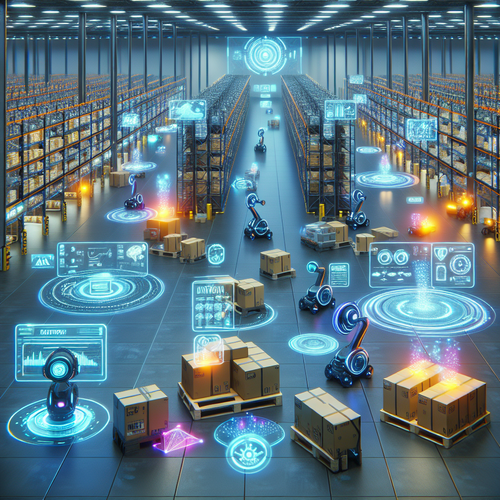
The Future of AI in Supply Chain Management
The Future of AI in Supply Chain Management
Artificial Intelligence (AI) is poised to revolutionize various industries, and supply chain management stands at the forefront of this transformation. The integration of AI technologies in supply chain processes enhances efficiency, minimizes costs, and improves decision-making. In this article, we’ll explore how AI is shaping the future of supply chain management.
Understanding AI in Supply Chains
AI leverages advanced algorithms and machine learning techniques to process vast amounts of data. In supply chain management, AI applications can be categorized into several key areas:
- Demand Forecasting: AI algorithms analyze historical sales data, market trends, and external factors like economic indicators to predict future demand, allowing companies to adjust production and inventory levels effectively.
- Inventory Management: With AI, businesses can optimize their inventory levels, reduce excess stock, and minimize shortages by predicting stock needs in real-time.
- Supplier Relationship Management: AI can assess supplier performance, predict potential risks in the supply chain, and suggest alternatives if a supplier fails to meet requirements.
- Logistics Optimization: AI enhances routing and scheduling for transportation, leading to reduced delivery times and costs.
Benefits of AI in Supply Chain Management
The integration of AI in supply chains offers numerous advantages:
- Increased Efficiency: Automation of routine tasks allows human resources to focus on more strategic functions.
- Cost Reduction: Optimized processes lead to significant cost savings across various stages of the supply chain.
- Improved Accuracy: AI minimizes human errors in data entry and analysis, ensuring accurate forecasting and inventory levels.
- Agility: Companies can respond more swiftly to market changes, enhancing flexibility in the supply chain.
Challenges in Implementing AI
While the benefits are clear, several challenges persist in the deployment of AI in supply chains. These include:
- Data Quality: Accurate and comprehensive datasets are crucial for effective AI applications.
- Integration Complexity: Merging AI solutions with existing supply chain systems can be complex and requires careful planning.
- Skills Gap: The demand for AI skills in the workforce exceeds supply; training and development are essential.
For businesses looking to embrace AI in supply chain management, it is vital to have a clear strategy and to start with processes that are ripe for automation.
Case Studies: Success Stories in AI-Driven Supply Chains
Many organizations have successfully integrated AI into their supply chains:
- Amazon: The retail giant uses AI algorithms to optimize its warehouse operations and streamline order processing.
- Walmart: By leveraging machine learning, Walmart forecasts demand for its products effectively, managing inventory efficiently.
- DHL: The logistics company utilizes AI for smarter route optimization and predictive maintenance of their fleet.
Conclusion
As we delve deeper into 2024, the role of AI in supply chain management will only continue to grow. Companies that harness these technologies will likely gain a significant competitive edge in the market. For more insights into emerging technologies impacting various sectors, check out our post on Understanding AI in Cybersecurity: Future Outlook.













